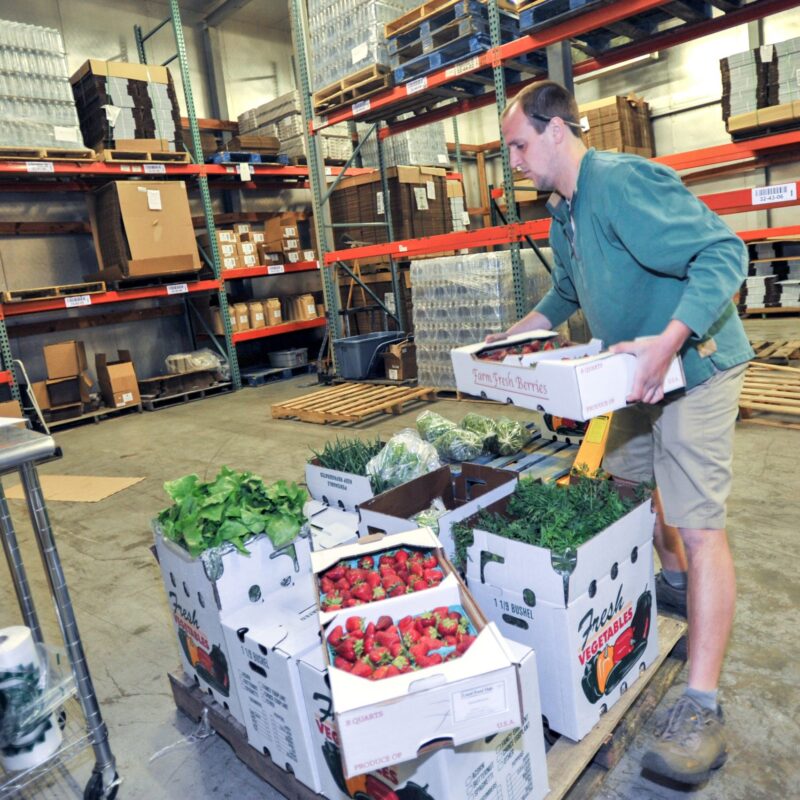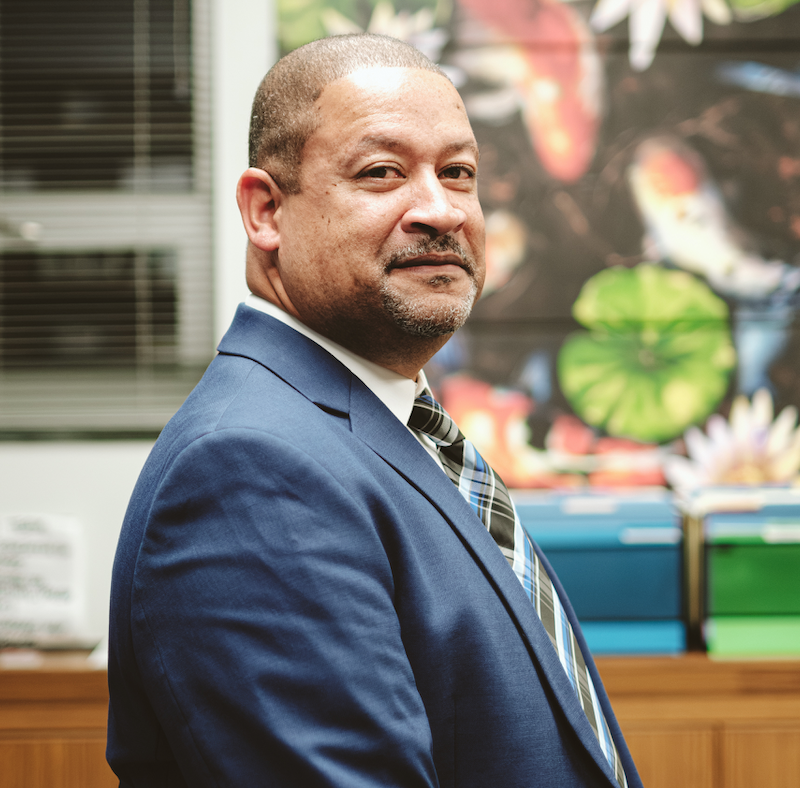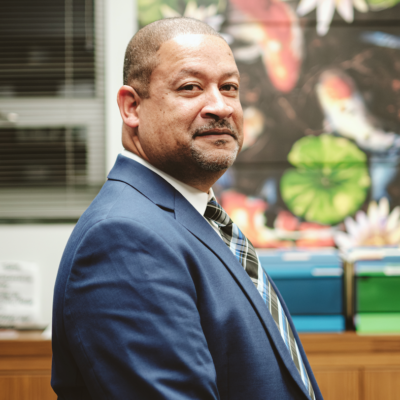As the saying goes, “new year, new me,” but the United States is starting 2025 with a rerun: the inauguration of Donald Trump and a Republican majority in the U.S. House and Senate.
Few of Trump’s priorities have clearly outlined policy proposals, either on his campaign website or in his official statements post-election. The president-elect’s stances are instead made evident by his appointments, public comments, and social media posts.
Despite disavowing Project 2025 (project2025.org), Trump has nominated several people involved with the political initiative for cabinet positions, and has followed the document’s appointment recommendations. Project 2025 provides insights into the policy proposals his administration is considering. Ahead of inauguration day, C-VILLE spoke with local stakeholders who may be affected by Trump’s potential policy changes.
Ground movement
Mirroring his first term, Trump is expected to prioritize the rollback of climate regulations over the next four years. He has made sweeping promises to limit funding for clean energy programs, including unspent funds from the Inflation Reduction Act passed in 2022.
“One of the things we are concerned about is obviously a lot of incentives and rebates were passed under the Inflation Reduction Act,” says Susan Kruse, executive director of Charlottesville’s Community Climate Collaborative. “Some of those rebates have not even fully deployed yet into states.”
More than $8.8 billion in home energy rebates were approved in the IRA, and more than a dozen energy-related tax rebates created. While Virginians have benefited from IRA tax incentives since the start of 2023, energy rebates are yet to be rolled out.
If the rebates are not deployed, Kruse says CCC is “really going to be pushing for localities to kind of fill those gaps and really help to continue to accelerate energy-efficiency and home and business electrification.”
Trump’s campaign website also calls for the elimination of the Green New Deal. No legislation called the Green New Deal has been passed by Congress, though the name has been widely adopted as a descriptor of climate-conscious legislation, including carbon emission reduction efforts. Trump has also promised to, once again, exit the Paris Climate Accord.
Throughout his political career, Trump has questioned the existence of climate change and the merit of environmental efforts, including at a rally just before the 2024 election, where he claimed “we don’t have a global warming problem.”
The selection of former New York congressman Lee Zeldin, who voted against certifying the 2020 election, to head the Environmental Protection Agency further foreshadows deregulation and downsizing efforts. Zeldin, a member of the House’s Bipartisan Climate Solutions Caucus, received a 14 percent score from the League of Conservation Voters, an environmental group.
For now, Kruse says the best path forward for environmental activists and those concerned with climate change is local- and state-level organizing.
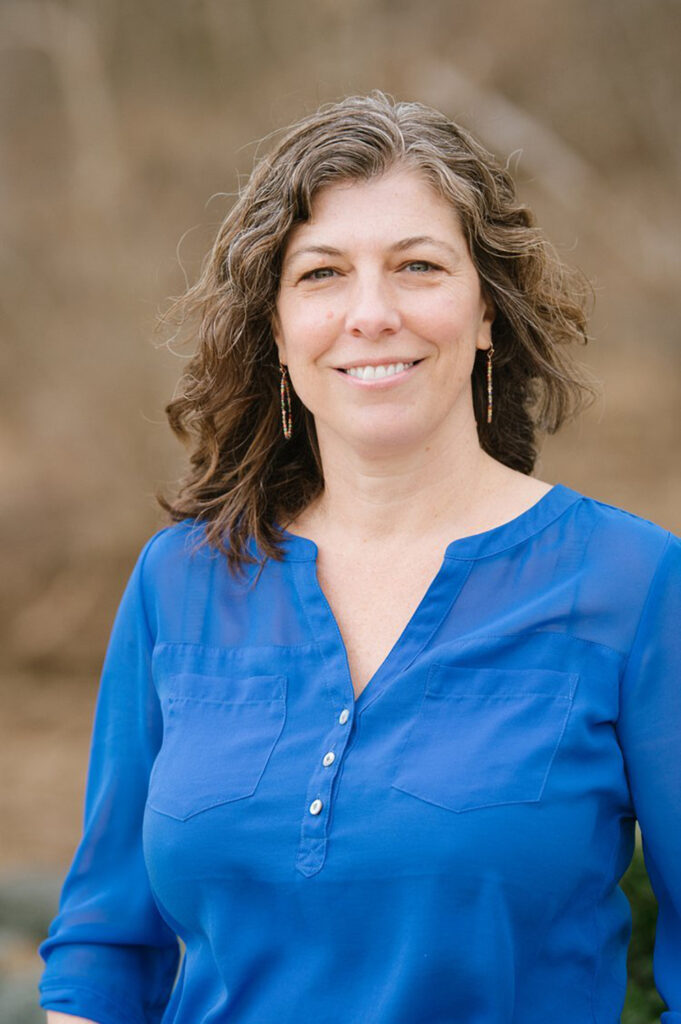
Susan Kruse, executive director of Community Climate Collaborative, started with the nonprofit in 2019, during the first Trump administration. Photo by Jen Fariello.
“Local action is absolutely our best opportunity to advance climate in a really immediate sense,” says Kruse. “It is unlikely to see many more things advance at the federal level over the next four years.”
The Community Climate Collaborative has always been focused on local-level efforts, something it plans to continue under the second Trump administration. Upcoming projects from CCC include the launch of an energy resource hub with the Local Energy Alliance Program, advocating for a solar ordinance in Albemarle County, and organizing around climate priorities in both the city and county’s annual budgets. The energy resource hub will fully launch in February, according to Kruse, and can be found at energyresourcehub.org.
“We’ve got a great community here where people really know how to work together to solve problems,” says Kruse. “We’re really looking forward to working with other organizations and other members of the community to really make our community an example … of a livable, sustainable future.”
Countdown
During and after his run for the presidency, Trump emphasized education policy as a primary issue for his administration.
The Trump-Vance campaign website mentions a number of education priorities, including “cut[ting] federal funding for any school or program pushing Critical Race Theory or gender ideology on our children. … veto[ing] the sinister effort to weaponize civics education, keep[ing] men out of women’s sports, and creat[ing] a credentialing body to certify teachers who embrace patriotic values.” The site also calls for the direct election of school principals.
All of the potential policy changes are framed through the lens of protecting parental rights, including Trump’s most radical education proposal: the elimination of the Department of Education.
While the president-elect has repeatedly said he wants to close the federal DOE and turn things over to its state-level counterparts, he will likely encounter significant barriers even with a Republican-controlled Congress. Still, budget cuts and downsizing of the DOE are expected.
“Any significant changes to the Department of Education will impact youths’ wellbeing, resulting in increased need for our programs,” says Eileen Barber, lead communications specialist at ReadyKids, a Charlottesville nonprofit that offers counseling, family support, and early-learning opportunities. “The DOE is responsible in part for enforcing non-discrimination laws and funding public schools, upholding policies and programs that guarantee the right of every child to an education. If these responsibilities are moved to the states, there will be less federal oversight to ensure all children receive a quality education.”

ReadyKids, a Charlottesville nonprofit that offers counseling, family support, and early-learning opportunities, has operated in Charlottesville since 1921. File photo.
“We anticipate the need for our services to increase, as well as the number of referrals we send to partnering organizations,” says Barber.
Combined with federal funding cuts and a decrease in grant opportunities, an increase in ReadyKids participants may affect the organization’s operations and offerings. The nonprofit also anticipates indirect impacts from policy changes in other areas that affect families and the education sector.
“We believe partnership is crucial. Charlottesville is home to many nonprofits doing vital community work,” Barber says. “When organizations work together to provide holistic care and a network of support, we are able to share information, resources, and services that make our community stronger.”
Picture of health
While Trump does not support a national abortion ban, his official campaign website is anti-abortion: “President Trump’s three appointees delivered the biggest win for life in a generation in overturning Roe v. Wade,” it reads.
Virginians—and those traveling to the commonwealth—can still access abortion care through the 26th week of pregnancy, with exceptions past that date to protect the life and health of the pregnant person.
Organizations like Planned Parenthood and Whole Woman’s Health are working to further protect access to reproductive health care in the commonwealth and nationwide.
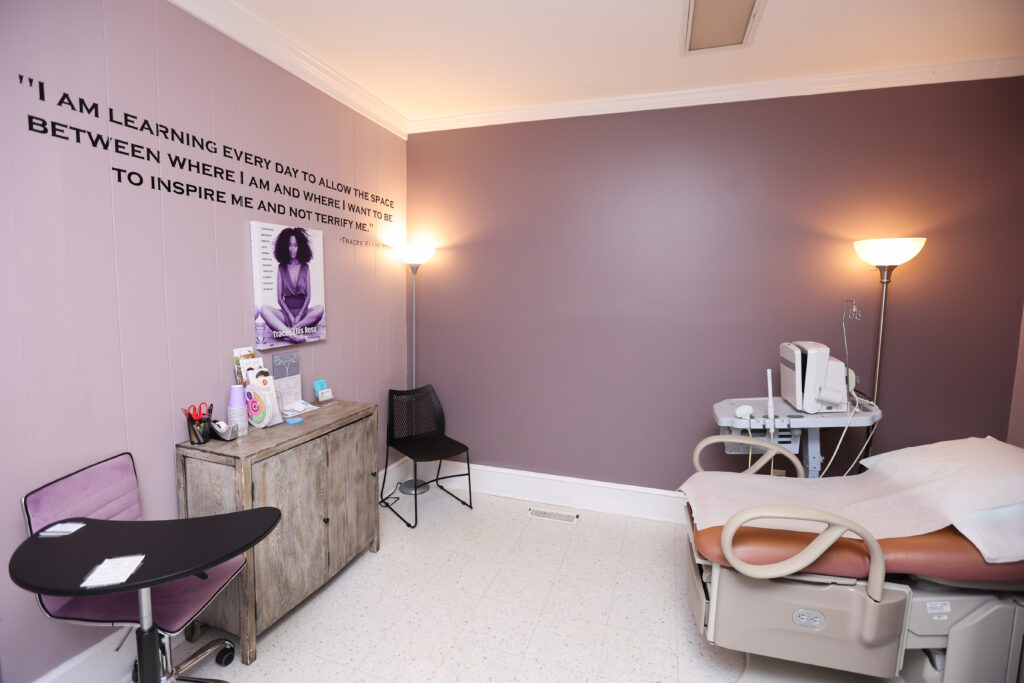
Headquartered in Charlottesville, Whole Woman’s Health works to protect access to reproductive health care in the
commonwealth and nationwide. Supplied photo.
“We are doing everything we can to have as many protections as possible,” says Jamie Lockhart, executive director of Planned Parenthood Advocates of Virginia.
Anti-abortion activists have pursued efforts to further restrict reproductive health care following the Dobbs v. Jackson decision that overturned Roe v. Wade in 2022, namely through legal and legislative efforts to bar or limit access to mifepristone and other abortifacients.
Project 2025 also calls for the Centers for Disease Control and Prevention and other agencies to restrict or ban access to mifepristone, the “week-after pill,” and other contraceptives. In addition, it advocates for the enforcement of the Weldon Amendment, which allows insurers and providers to withhold abortion access on the basis of personal beliefs.
Trump has nominated David Weldon, author of the amendment, to lead the CDC.
“We know that they’re going to try to attack abortion access in a number of ways,” says Lockhart. “We know that they’re going to try to pass restrictions or bans through Congress. We know that they’re going to also try to take actions administratively.”
WWH has also taken action ahead of inauguration day, according to CEO Amy Hagstrom Miller. “We have added to our on-site supplies in our clinics in case there is any disruption in shipping or in the ability to get abortion pills in our clinics,” she says. “We are also preparing to be part of litigation if needed.”
Since the overturn of Roe v. Wade, Whole Woman’s Health Alliance (the advocacy arm of the Charlottesville-based organization) has been a major player in the legal fight to protect access to mifepristone, in Virginia and across the country. WWH and other pro-choice activists in the Charlottesville area have also organized an abortion fund and other resources to help those in need access reproductive care.
Pro-choice organizations like WWH and Planned Parenthood have lobbied for legislation to protect abortion and contraceptive access in Virginia, most recently through a proposed amendment that would enshrine protections for reproductive freedom into the state constitution.
The amendment, along with two more focused on marriage equality and voting rights, passed the House Privileges and Elections Committee in November. However, the earliest any of the proposed constitutional amendments could appear on the ballot is November 2026.
In the interim, Planned Parenthood Advocates of Virginia is calling for Gov. Glenn Youngkin to reverse course on two bills passed by the legislature in 2024—the Right to Contraceptive Act and the Contraceptive Equity Act.
“Both [acts] received bipartisan support and passed through the House and Senate, but then they were vetoed by Governor Youngkin,” says Lockhart. “We are again pushing for those pieces of legislation and asking the governor to do the right thing this year and to sign those bills into law.”
“Everyone said that Roe v. Wade was settled,” says Lockhart. “Just like people thought Roe v. Wade was safe, we know that everything else is at risk. We know that access to contraception is at risk. We know that marriage equality for LGBTQ couples is at risk, and so we’re not taking anything for granted. … We have to ensure that we’re being vigilant, making our voices heard, and that we’re doing everything we can here in Virginia to enshrine protections in our constitution for Virginians.”
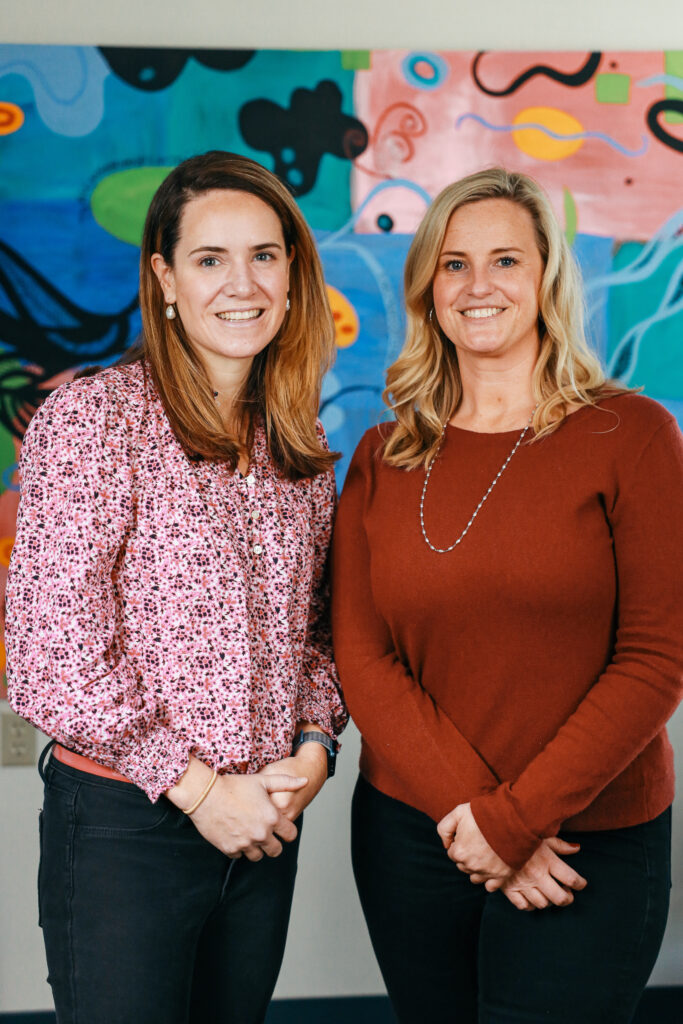
The Charlottesville Free Clinic, led by co-CEOs Willa Barnhardt and Meghan Hinger, has seen an increase in patients year after year. Supplied photo.
Also under the umbrella of health care is the Affordable Care Act, aka Obamacare, something Trump and congressional Republicans have long advocated to repeal and replace. Beyond this and his support of Medicaid, Trump’s health care agenda is relatively ambiguous.
While the change in administration and Congress brings a number of unknowns for the entire health care industry, the Charlottesville Free Clinic expects an increase in patients to continue.
“We are always in the position of anticipating that we will have more patients,” says Willa Barnhardt, CEO of development and finance.
“We’re having a call … to discuss what potential changes could be coming that would impact our patient base and how we treat patients. But we’ve been around for 31 years, and steadily grow and grow because of … community needs,” says Barnhardt. “The care we provide there won’t change … none of what we do on a day-to-day basis is going to change.”
With pride
In a continuation of his first administration, the president-elect and Republican majority in Congress are expected to attack rights and protections for LGBTQ+ Americans.
The Protecting Parents’ Rights section of the Trump-Vance campaign website is less than subtle, decrying the Biden-Harris administration and “radical left [for] using the public school system to push their perverse sexual, racial, and political material on our youth.”
Project 2025 further asserts that “redefining ‘sex’ to ‘sexual orientation and gender identity in Title IX … puts girls and women in danger of physical harm.”
There is no evidence that protections on the basis of gender identity or sexual orientation increase rates of violence against women or girls. There is no evidence supporting claims transgender people are more likely to be perpetrators of sexual assault. There is significant data published in multiple studies and journals, including the American Journal of Public Health, that trans people are more likely to be victims of violent crime and sexual assault than cisgender people.
In its assessment of Trump’s stances on LGBTQ+ rights, the American Civil Liberties Union anticipates a number of regulation and rule changes removing protections against discrimination. Other possible anti-LGBTQ+ policies include a ban on openly transgender people in the armed services and “blocking gender-affirming medical care for transgender people in federal health care programs such as Medicare.”
For local organizers, the incoming Trump administration and Republican Congress has sparked renewed and rapid work on the creation of a queer community center.
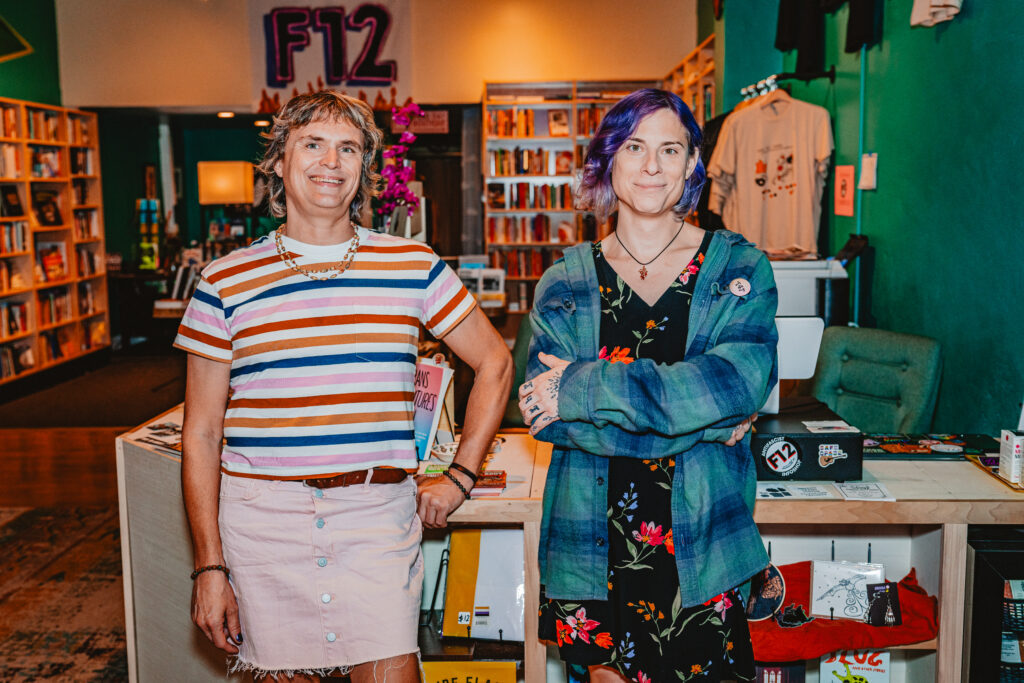
Senlin Means and Ellie Picard, co-owners of The Beautiful Idea, are part of the effort to launch a queer community center in downtown Charlottesville. Photo by Tristan Williams.
“Since we opened our store [The Beautiful Idea] a year and a half ago, we’ve planned to work on a community center and thought about [it] as a long-term project,” says Ellie Picard, the shop’s co-owner. After the election, local organizers decided the time for a community center was sooner rather than later. “Having more physical spaces in the region that are queer-owned, queer-controlled, is absolutely crucial to the vitality and sort of the survival of the community,” Picard says.
Picard and other activists working on the launch of the queer community center have moved fast, and are in the process of leasing a location downtown. The space may be open by February, but organizers are still trying to solicit feedback on priorities from other LGBTQ+ people in the area.
“We see how fast rights and access to opportunity can be rolled back in this country, when people feel like there’s nothing stopping them from trampling on other people’s rights,” says Picard. “Having places where we can share skills, share resources, provide mutual aid to each other, and create new resources for liberation and survival—that’s desperately needed. And the act of creating those spaces does so much for our spirits and our collective sense of hope and capability.”
After the overturn of Roe v. Wade, LGBTQ+ activists worried that the Supreme Court could overturn the 2015 Obergefell v. Hodges ruling that federally legalized same-sex marriage.
Anecdotally, Picard says she knows a number of people moving up wedding dates out of concern for the future of marriage equality.
The state legislature passed a bill protecting Virginians’ right to marriage equality, signed into law by Youngkin in 2024. An amendment that would remove the existing anti-marriage equality language from the state constitution is currently being considered, and could appear on the ballot as early as 2026.

